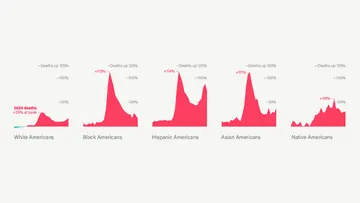Why would people in prison be especially likely to catch COVID-19? Take a look at these photos and decide for yourself.
The pictures provide a rare glimpse inside two prisons in California that are nearly impossible for the public to view. One is the California Medical Facility in Vacaville, California, north of San Francisco, which is full of sick and elderly men. The other is the overcrowded California Institution for Men in Chino, east of Los Angeles.
These photos were filed in federal court by lawyers contending that the state has failed to protect incarcerated people from coronavirus and asking a judge to order the release of vulnerable prisoners. All the photos were shot last year, but the filing says they represent continuing conditions.
In a statement, prison officials said they will review the legal motion, adding that the corrections department “has been diligent in implementing proactive efforts to ensure health and safety, including recent actions to limit the risks and spread of COVID-19.”
Joshua Hall, a dormitory at the California Institution for Men, is built to hold 80 people but currently houses 129. Thirty-four of them are age 70 or older, and many suffer from chronic illnesses, including diabetes, HIV and chronic kidney disease. They sleep in bunk beds and must walk in a narrow space between the bunks to use the bathroom.
Three men inside their living facility at the California Medical Facility. The photograph was taken in April 2019 as part of court-ordered monitoring of prison conditions.
A dormitory at the California Medical Facility, which provides services including treatment for chronic diseases and end-of-life care. Lawyers for prisoners say conditions have not changed since the photos were taken, in this case last November.
A bathroom at the California Institution for Men. As of March 26, three staff members at the facility had tested positive for COVID-19. No cases had been confirmed among prisoners there.
Sinks in a bathroom inside the California Institution for Men. The state prison system reported only one confirmed case among the 117,000 people confined in prisons and camps.
